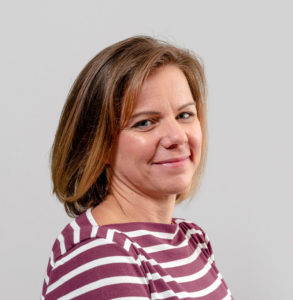Risk management lets you drive faster, and safer!
16 july 2020

Crisis or no crisis, Anna Polak, Riskonet partner in Poland, shares her insights into how Integrated Risk Management can maximise safety. And reduce costs in the process!
Recently, I was asked by a client: “In a time of crisis, what insurance cover could we discontinue in order to make cost savings?” It made me realise that many clients are asking themselves the same question; and the term ‘risk management’ immediately sprang to mind. It’s hardly a new phenomenon, but it’s not one that’s widely applied here in Poland. If you were to ask Polish companies whether they manage risks, most would say ‘yes’. But probe a little deeper if they do so in a formal, structured and continuous manner and I wonder how many would still say ‘yes’. International and more mature organisations, probably. But typical Polish companies fighting for market position? Probably not!
Questions, questions, questions
In my previous job as an insurance broker I acquired unique insights into my clients’ various business models. These insights now help me to better understand Riskonet’s clients’ decision-making processes regarding the scope of insurance cover, the safety measures that should be installed, and how to set priorities. Clients typically ask themselves: Which additional insurance should we buy? Which, if any, fire protection system should we install? Which production line should be protected, and why? Is our coverage perspective likely to differ from that of our insurer? How should safety investments be prioritised? And which risks should we insure? One way or another, clients always find answers to these questions. But they are not necessarily always the right answers.
Risk strategy
Faced with the need to save costs, sooner or later a company’s thoughts will turn to insurance, particularly if it only regards insurance as a necessary evil. What cover is indispensible? And how can the amount of insurance be quantified? The drive to decrease costs and optimise investments quickly gains momentum during a crisis, such as the current corona virus that’s now putting huge pressure on the global economy. Companies will typically debate the severity of a crisis, review their plans and cut their budgets. But the danger of having no risk strategy in place in a crisis or otherwise is that it makes it easier not to spend on safety and protection. Easier perhaps, but not wiser!
“At Riskonet, what we call Integrated Risk Management entails creating the ideal environment in which our clients can make wise decisions.”
Anna Polak
Riskonet Partner in Poland
The right decisions
Risk management, then, is more about spending money more wisely than saving it. If a company fragments its risks into silos, as it were, it makes it very difficult to see whether safety investments are being properly allocated. The secret is to make sure that the risks are properly assessed and prioritised; that’s when you’ll maximise the likelihood of making the right decisions. The funds that are available to you will then go to the places where they are needed the most.
Company-wide
At Riskonet, what we call Integrated Risk Management entails creating the ideal environment in which our clients can make wise decisions. Integrated Risk Management is about implementing the necessary processes and culture throughout the organisation. Covering all areas, from finance to IT and from HR to corporate responsibility. It integrates all company departments into a single process of the assessment, reporting, treatment and monitoring of risks – in annual cycles. If risk management is only applied in certain areas, it can often be fragmented, and the acquired knowledge is compartmentalised.
Criteria
We advise clients on how to analyse risks and create a reference point, namely a risk profile. This makes it possible to prepare a significance rating to each risk. Furthermore, it also provides a tool for prioritising the way risks are treated. The client decides at a strategic level what is and what isn’t acceptable, based on or linked to his financial position, the number of potential injuries or even deaths associated with the risks, as well as other criteria. The client can then quickly tell by looking at the risk profile where the money should go, where protection is necessary, which area can stay as it is, and whether insurance should be bought. Finally, the appropriate treatment is verified and chosen, and the go-ahead can be given.
Different perspective
By way of illustration, I recently told a client who wanted to reduce costs by decreasing insurance to consider the opposite approach. I advised this client to include risk tolerance in the equation, to assume part of the risk himself and thus increase deductibles. He could then apply for an insurance-premium reduction on that basis. For that client it worked out well, very well in fact. But of course, as consultants, we are used to looking at things from a different perspective; it’s what we do.
Expect the unexpected
Risk management is all about being prepared for the unexpected, making smart and conscious decisions and keeping a cool head. All companies take risks, every day. And when the going gets tough it’s easier to make the right decisions if you have done your homework and have the right plan in place. Crises fuel uncertainty and anxiety and cause stress, which is a bad advisor. A decision based on anxiety can create problems that are worse than the crisis itself. The necessary preparation, homework and plan are all facilitated by good risk management, which I like to compare to Formula One racing: it allows you to drive faster, but safer at the same time!





